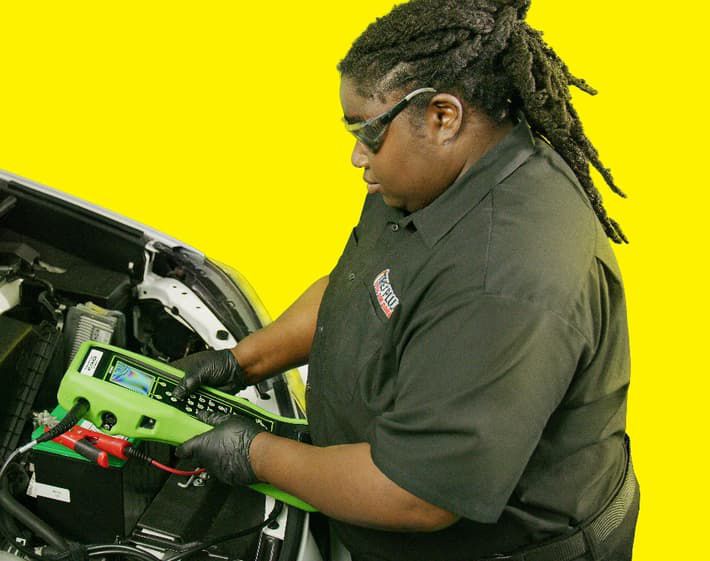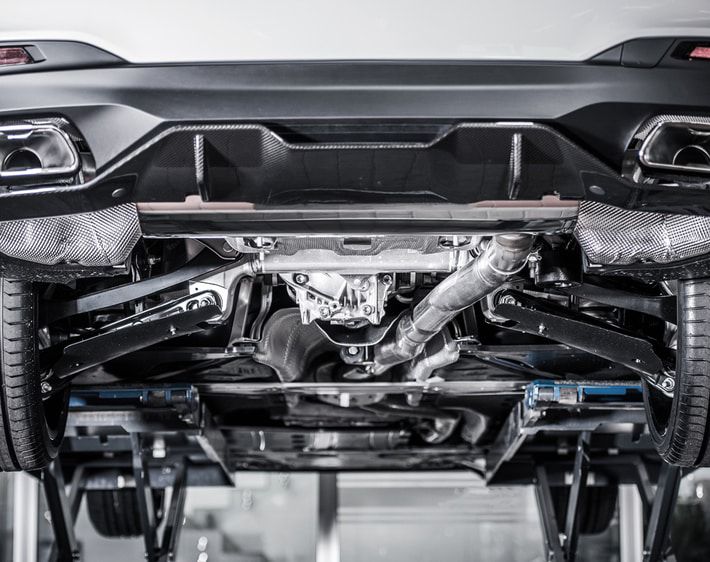 When you purchase a new car battery, it feels like you’re given a vague range of years for how long it should last. However, there are many variables to consider regarding your car battery's lifespan, such as temperatures in your area, length of trips, and more! Learn about the factors that affect your car battery’s life, how often it should be replaced, and tips for how to extend its useful life.
When you purchase a new car battery, it feels like you’re given a vague range of years for how long it should last. However, there are many variables to consider regarding your car battery's lifespan, such as temperatures in your area, length of trips, and more! Learn about the factors that affect your car battery’s life, how often it should be replaced, and tips for how to extend its useful life.
How Long Should A Car Battery Last?
Generally, car batteries last 3-5 years. However, there are multiple factors affecting your car battery’s life, and each can influence how long the battery will last. Avoid the surprise of a dead battery by getting a free battery test from your nearest Tires Plus.
Factors Affecting Car Battery Life
Time
The amount of time you spend driving per trip can impact your battery's lifespan. Driving for short, frequent periods can harm your battery as opposed to driving for longer durations. This is because your battery relies on the alternator to charge, and if the alternator only runs for short periods, the battery will use up more energy starting the car than it's able to “get back” while the engine is running.
Additionally, time between drives can affect the battery life, too. Vehicles parked for long periods without being started can see their batteries begin to discharge power.
Temperature
In some cases, your battery may fall short of its expected lifespan due to the climate you live in. Temperature extremes — hot or cold — may place additional strain on your battery, leading to lackluster performance and a shortened battery life.
Vibration
Excessive vibration of the battery under the hood can cause internal components to break down. To minimize vibration, ensure it’s appropriately installed by visiting an expert technician for a complimentary battery check or battery replacement at your local Tires Plus. Additionally, do your best to avoid overly-aggressive driving, especially with missing or loose battery hardware.
How to Extend Your Car Battery Life
To help get the most out of your vehicle's battery, try to:
- Limit short drives
- Use hold-down hardware to keep your battery tightly fastened under the hood
- Turn off lights, music, and auxiliary electronics before you turn off or exit the vehicle
- Keep the battery terminals corrosion-free
- Keep up with your vehicle’s manufacturer-suggested service recommendations
When to Replace Your Car Battery
For an accurate reading, use a voltmeter or get a complimentary battery test if you suspect it’s time for a new car battery. Additionally, keep an eye out for other warning signs of a dying battery.
The battery is old. Most drivers overlook minor performance issues affecting their battery, which is why, in many cases, motorists don’t know they have a battery problem till theirs dies for good. If there have been no issues or warning signs, but your battery is getting close to the 3-year mark, it’s worth having it checked. It’s best to have a new battery installed before the old one dies to avoid getting sidelined on your next road trip.
The engine starts slowly. A slow-cranking engine can indicate the battery is not sufficiently charged, especially if you drive an older vehicle. The starter will crank the engine slowly, and there might be a clicking or whirring noise before the engine turns over. You might also notice the interior and dash lights illuminate and dim in the same pattern as the engine’s cranking.
The lights are dimming, or there are electrical issues. The battery helps power all of your car’s lights, electronics, and auxiliary gadgets. When your battery gets old, it can lose the ability to power all of these devices. If you notice dimming lights or electrical issues, a faulty battery could be to blame. It's best to unplug any extra gadgets — like phone chargers, auxiliary cords, or headrest TVs — until the battery and electrical system have been inspected.
The battery terminals are corroded. A battery with white, blue, or green ashy battery acid on top of the terminals has corrosion and likely needs service or replacement. Corroded battery terminals can cause voltage issues, which can lead to problems starting your car.
It smells like rotten eggs. A sulfuric — or rotten egg — smell coming from under the hood may mean your battery is leaking or has another issue that requires immediate attention. If something smells rotten, it’s best to call roadside assistance for towing to your nearest Tires Plus.
The check engine light is on. The check engine light can indicate any range of automotive issues, but it’s the perfect time to get your battery checked. When you bring your vehicle in to have the check engine light code read, have a Tires Plus technician check the battery charge to determine its remaining voltage.Additionally, some cars have a dedicated battery light that will illuminate in case of electrical issues.
The battery case is warping. Exposure to extreme temperatures can make a battery case swell or crack. If your battery case is warping or cracked, it’s time to have your battery serviced or replaced.
Is it time to get your vehicle's battery tested? Tires Plus has got you covered! We can help you troubleshoot your battery warning signs to know if it’s time for a replacement.
Keep Your Battery In Check with Tires Plus
When looking for better ways to extend your car battery's lifespan, look no further than your local Tires Plus! Whether you need a battery diagnostic test or a new battery altogether, we've got you covered. Schedule your service appointment today at your nearest Tires Plus for battery services from the car care experts.




